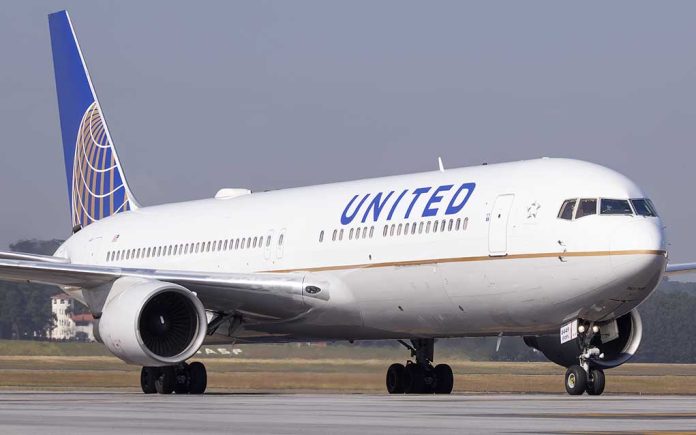
Emirates Airline President Tim Clark rebukes aircraft manufacturers for supply chain excuses while praising Boeing’s turnaround efforts under new leadership, signaling a potential shift in the global aviation industry.
Key Takeaways
- Emirates President Tim Clark sees “positive progress” at Boeing despite ongoing industry-wide delivery challenges
- Clark dismisses pandemic excuses and demands accountability from manufacturers, stating bluntly: “You are the supply chain.”
- Boeing’s efforts to stabilize production are yielding results as Emirates awaits delivery of 205 Boeing 777X aircraft
- Airbus faces potential supply chain delays extending up to three more years, placing additional pressure on the aviation industry
- Emirates remains skeptical about Rolls-Royce engine performance in extreme desert climates despite potential future opportunities
Boeing Shows Signs of Recovery Under New Leadership
Boeing is demonstrating renewed determination to resolve its production challenges according to Emirates Airline President Tim Clark, who offered rare positive comments about the troubled aircraft manufacturer. After years of delays and quality control issues that severely impacted deliveries, Boeing appears to be turning a corner under its new CEO. The aerospace giant is working to stabilize production after a quality crisis and labor strike halted most aircraft manufacturing operations last year, leaving carriers like Emirates waiting for critical fleet updates.
“We’re seeing a more positive tone,” said Tim Clark
Emirates has 205 Boeing 777X aircraft on order, with delivery now expected between late 2026 and early 2027, representing a six-year delay from the original timeline. Despite these significant setbacks, Clark’s acknowledgment of positive changes at Boeing suggests the manufacturer may finally be addressing the fundamental issues that have plagued its production capabilities. Boeing is currently awaiting FAA certification for the 777X plane, a critical milestone before deliveries can begin.
No More Pandemic Excuses for Manufacturing Delays
Clark expressed frustration with both Boeing and Airbus for their continued references to pandemic-related disruptions as justification for ongoing delivery delays. In a direct challenge to aerospace manufacturers, Clark dismissed COVID-19 as a legitimate excuse for current inefficiencies in the industry. His comments reflect growing impatience among airline executives who face their operational challenges while waiting for manufacturers to fulfill aircraft orders placed years ago.
“I’m quite tired of the self-pity about the supply chain—you are the supply chain,” according to the President of Emirates Airline.
The Dubai-based carrier depends on new, fuel-efficient aircraft to modernize its fleet and expand routes, making these delays particularly problematic for its long-term strategic planning. Emirates operates in a competitive global market where efficiency is paramount, and the airline has consistently demanded concrete solutions from suppliers to maintain its competitive edge. Clark’s comments underscore the critical importance of reliable manufacturing partners in the aviation industry.
Airbus Delivery Challenges Persist
While Boeing shows signs of improvement, Emirates’ leadership remains concerned about Airbus’s ability to deliver aircraft on schedule. According to industry sources, Airbus faces potential supply chain delays that could extend up to three more years, adding significant pressure to airlines waiting for new planes. These ongoing issues affect the entire aviation ecosystem as carriers must extend the service life of older, less efficient aircraft while waiting for next-generation replacements.
Despite these challenges, Emirates has demonstrated resilience in navigating the complex global aviation landscape. Clark noted that the airline has not observed any demand changes resulting from President Trump’s tariff policies, suggesting that core international travel patterns remain stable despite geopolitical and economic fluctuations. GE Aerospace, a key supplier, is expected to absorb any tariff impacts from U.S. trade policies rather than passing costs to airlines like Emirates.
Engine Reliability Concerns in Desert Operations
Beyond aircraft delivery timelines, Emirates maintains significant concerns about engine reliability in the extreme desert climate of Dubai. Clark has previously expressed frustration with Rolls-Royce engines due to maintenance issues in hot climates – a critical consideration for an airline operating primarily from one of the world’s hottest regions. These concerns could impact potential deals for Rolls-powered Airbus A350-1000 jets, which remain uncertain for the upcoming Dubai Airshow.
“There are still opportunities for Rolls-Royce in the region—if they can deliver the performance we need,” said Tim Clark
The skepticism surrounding Rolls-Royce’s engine performance highlights the complex technical challenges facing manufacturers in the aerospace industry. Emirates operates in an unforgiving environment that pushes aircraft components to their limits, requiring exceptional reliability and durability. As one of the world’s largest international carriers, Emirates’ fleet decisions have significant implications for aircraft and engine manufacturers worldwide.



